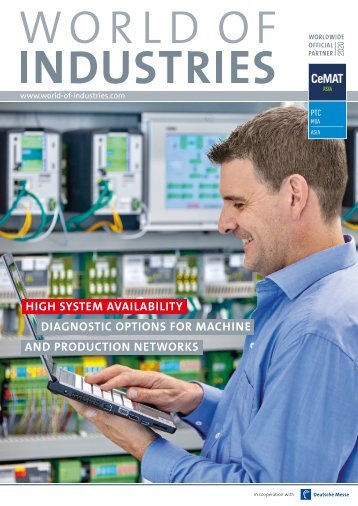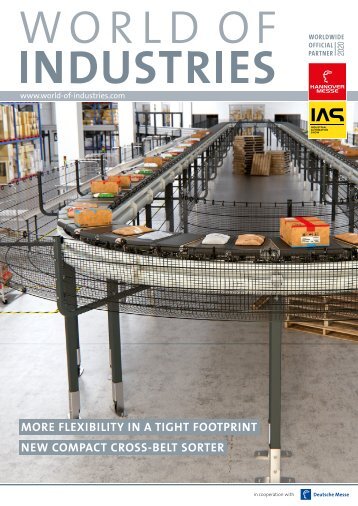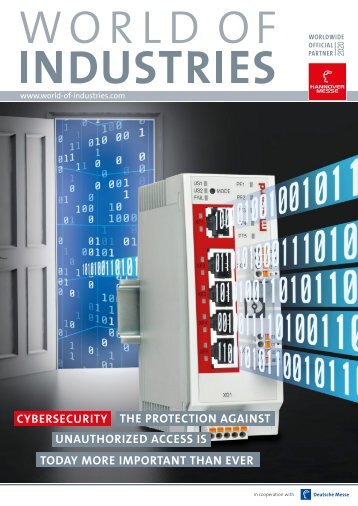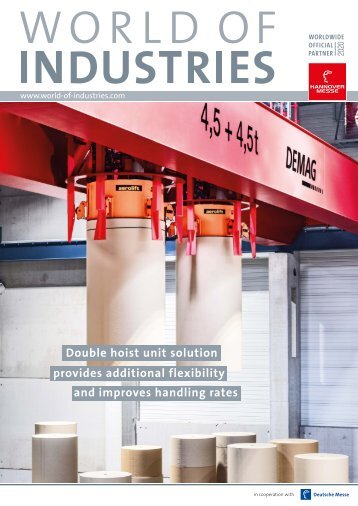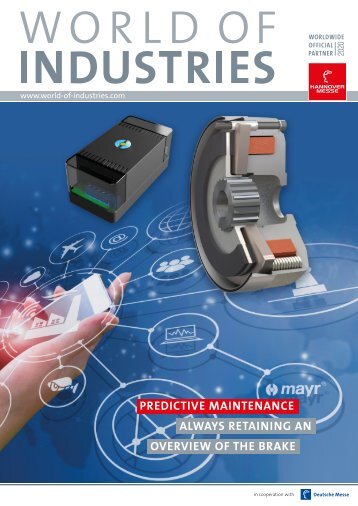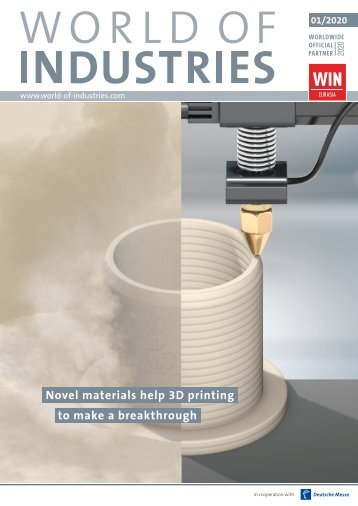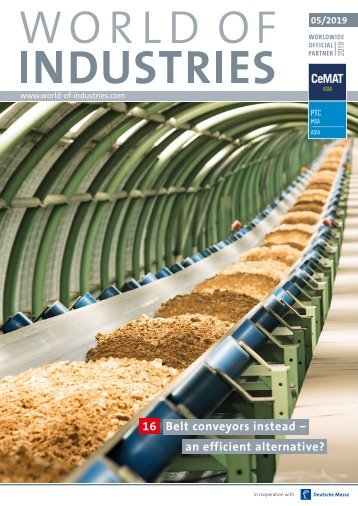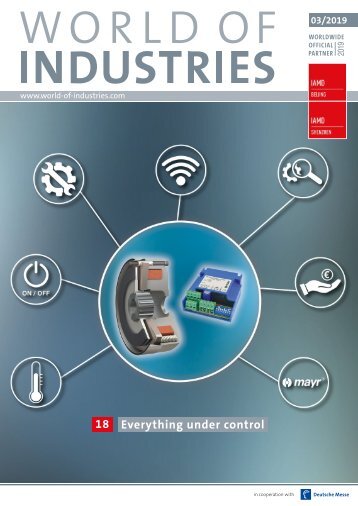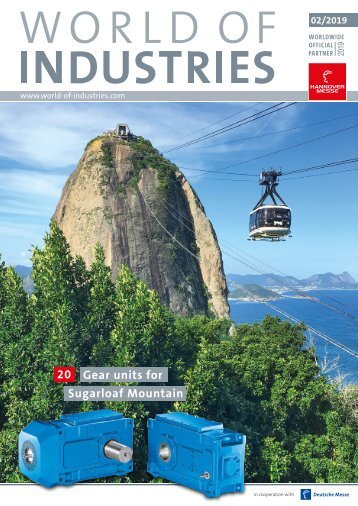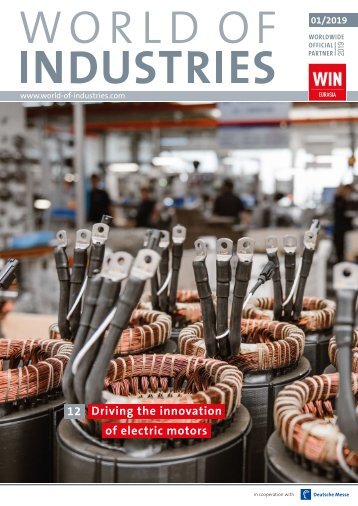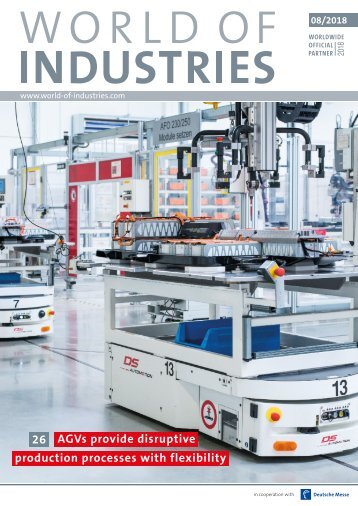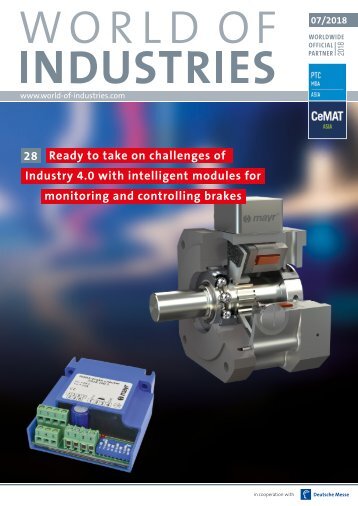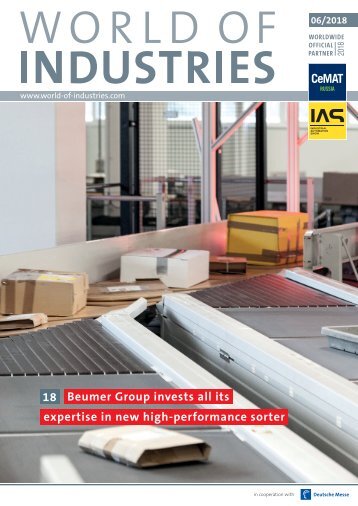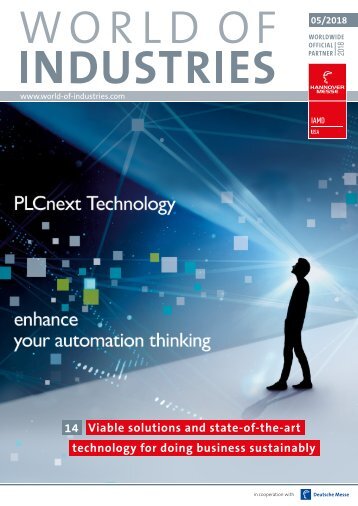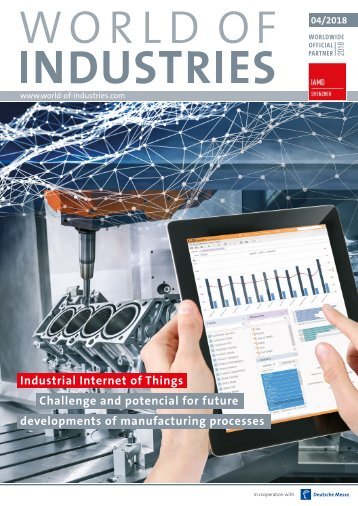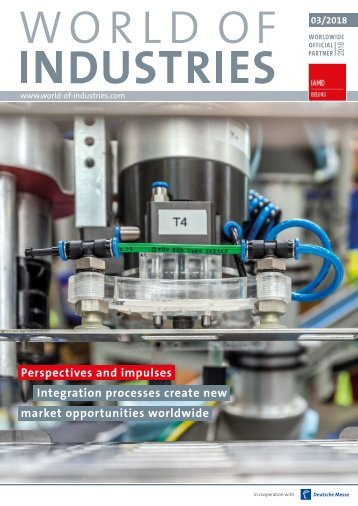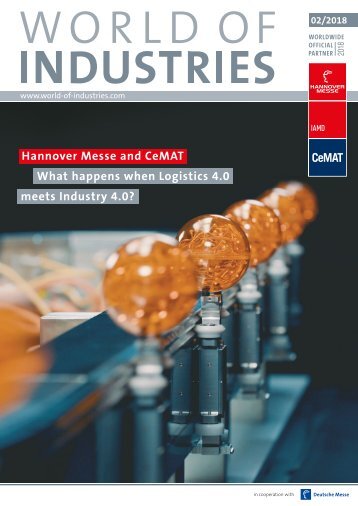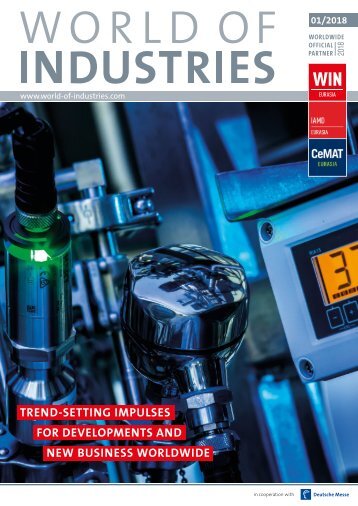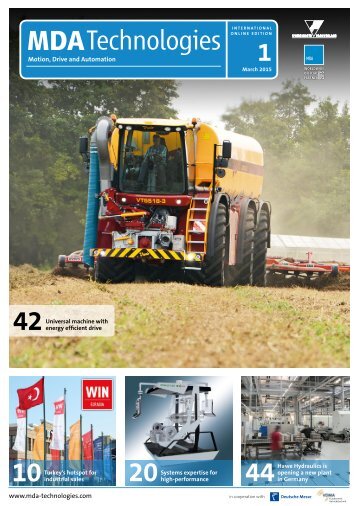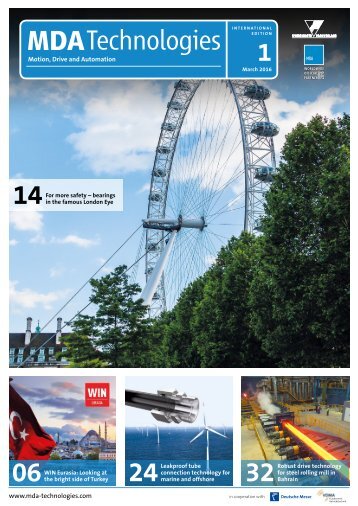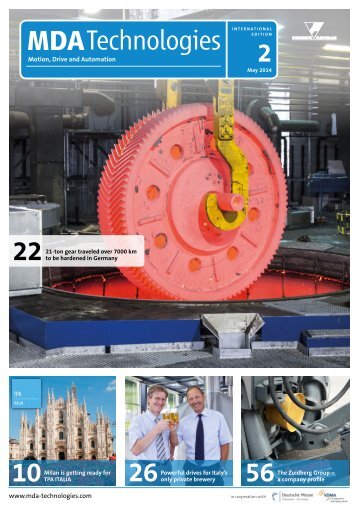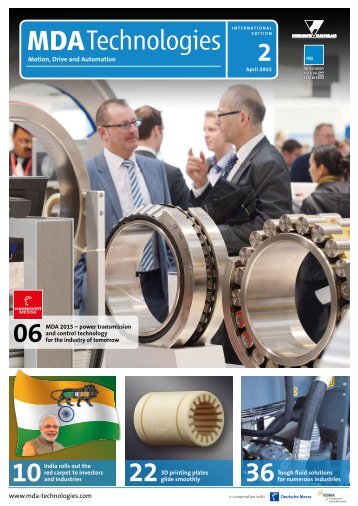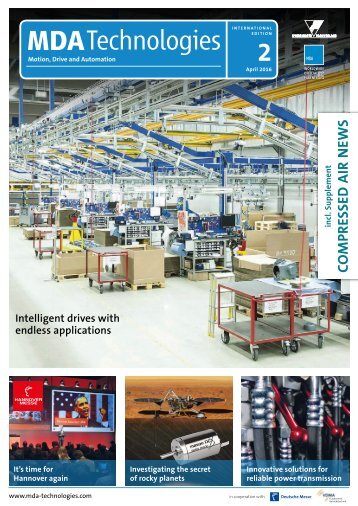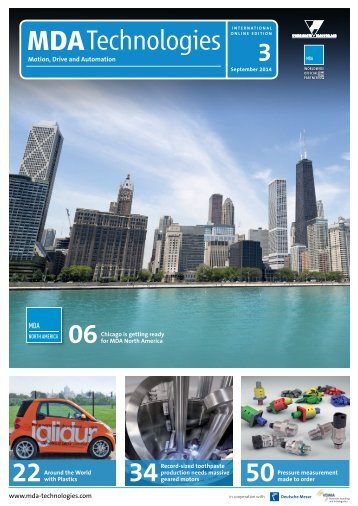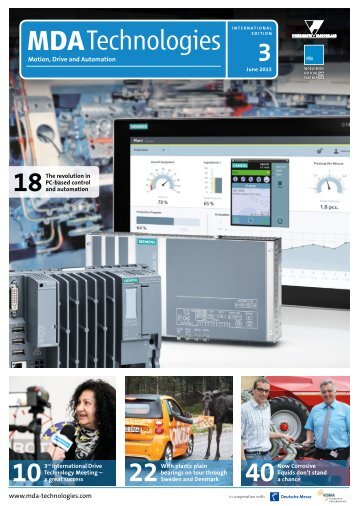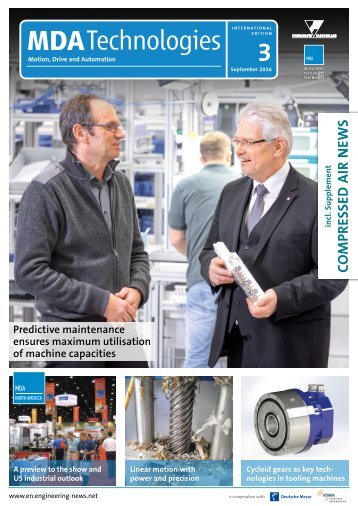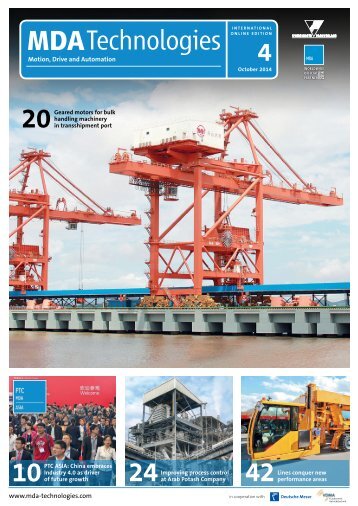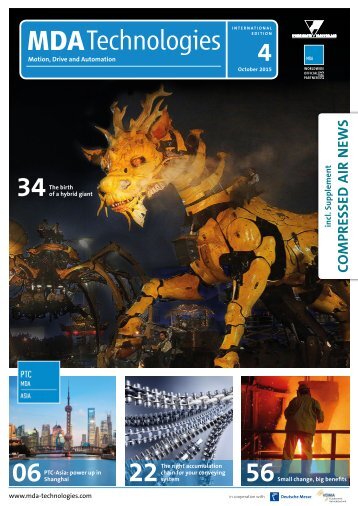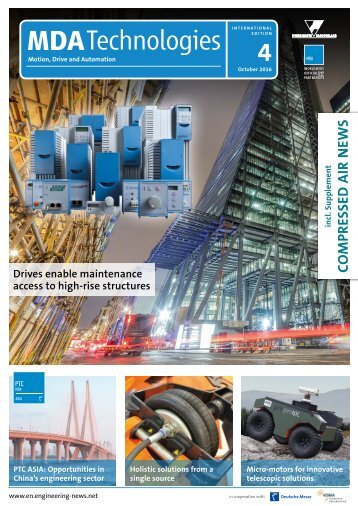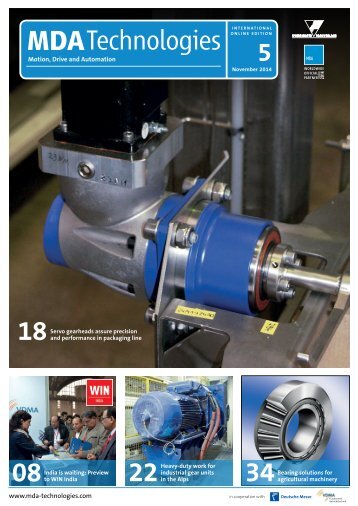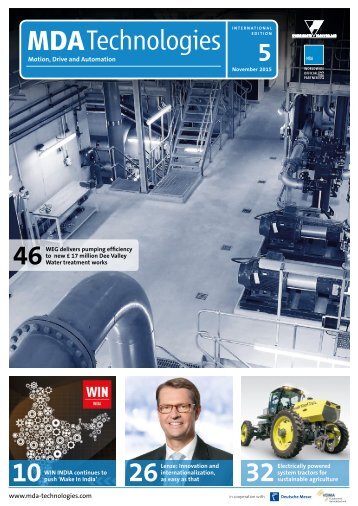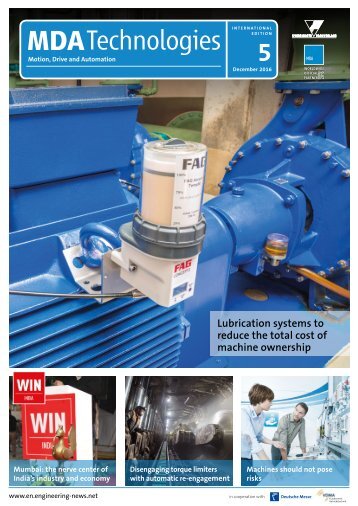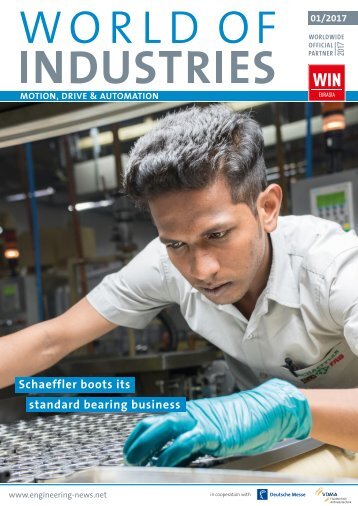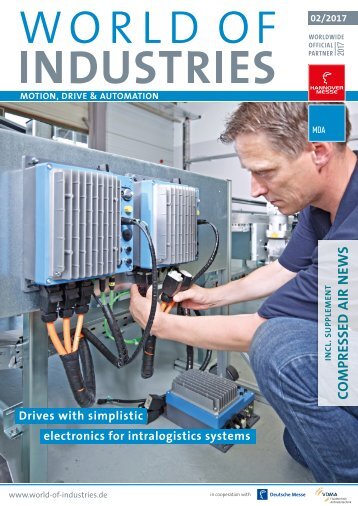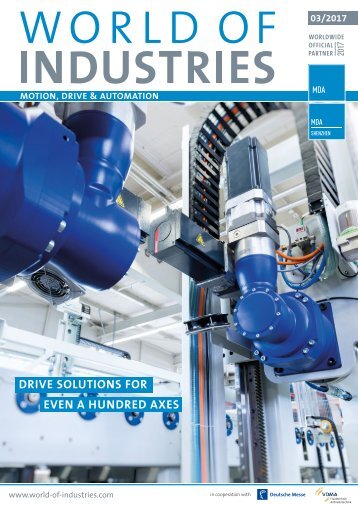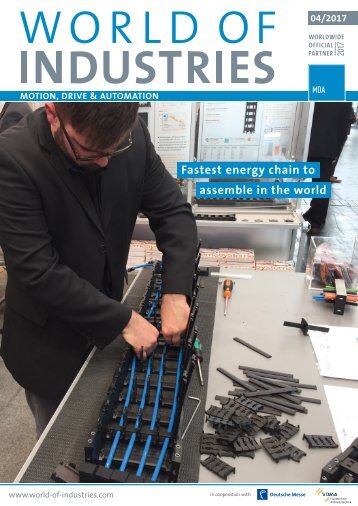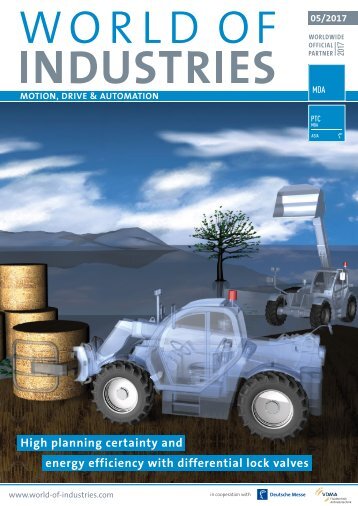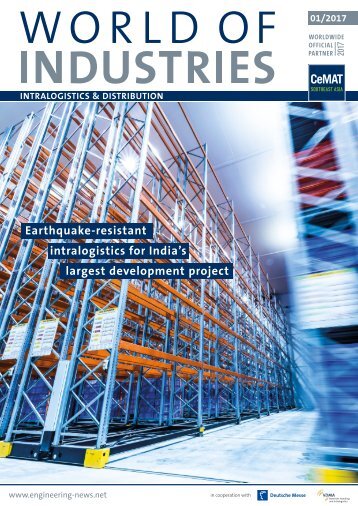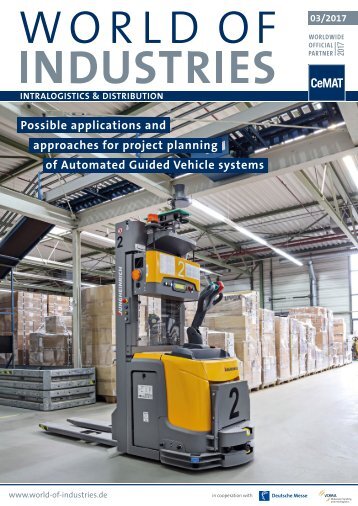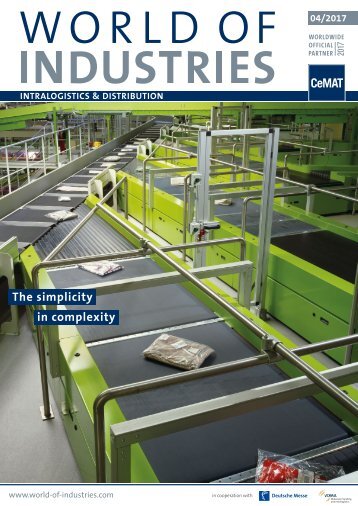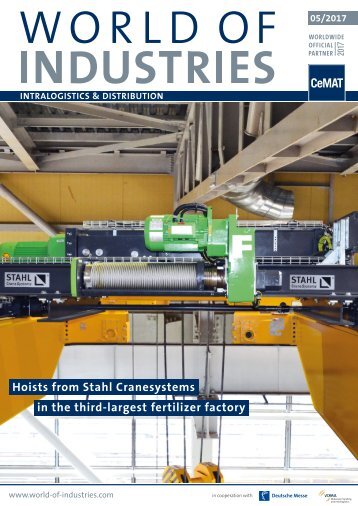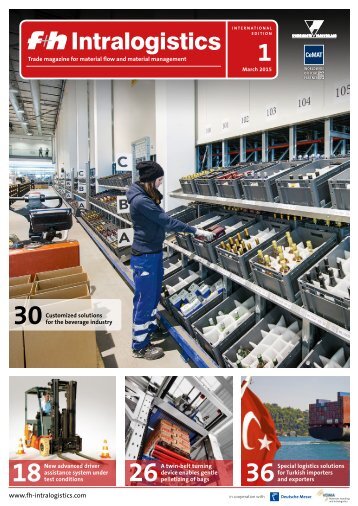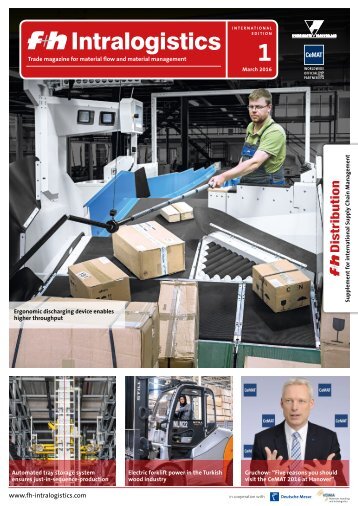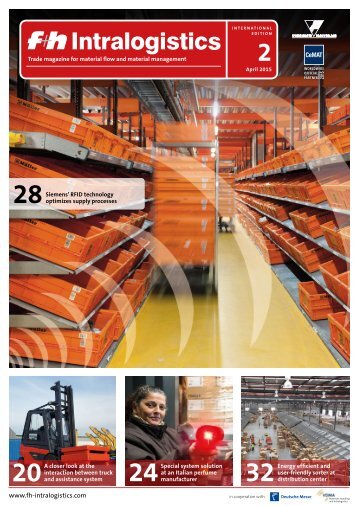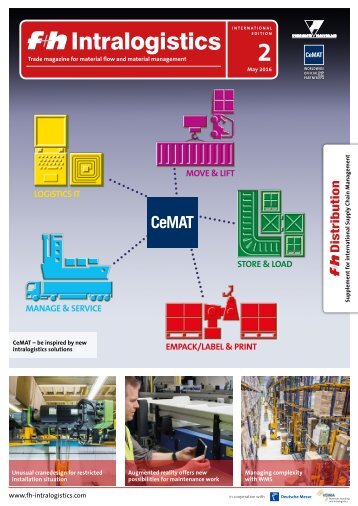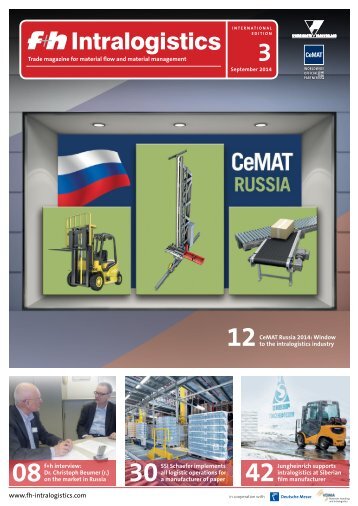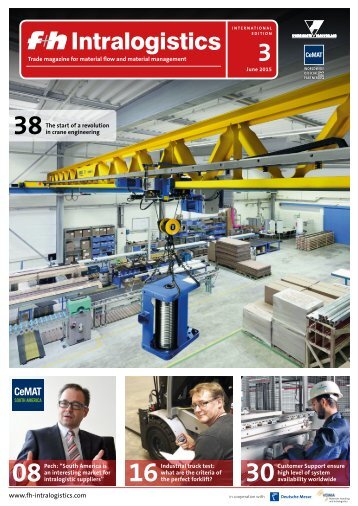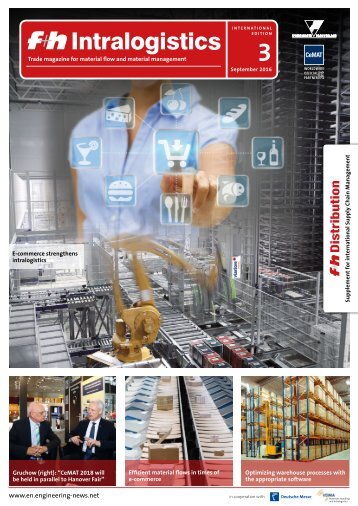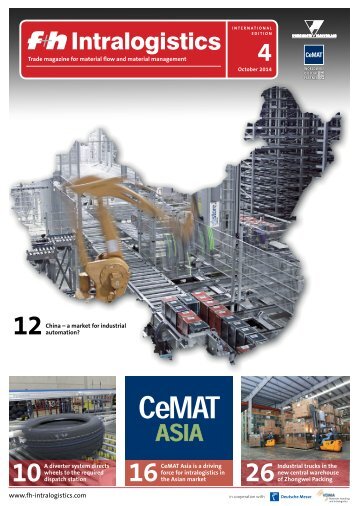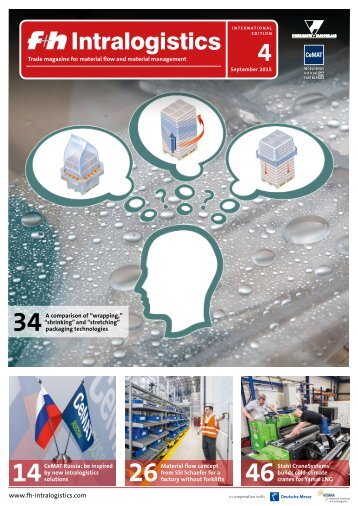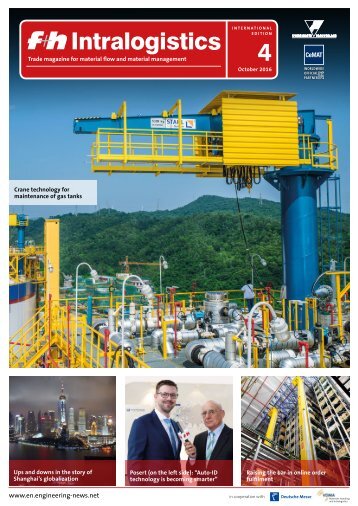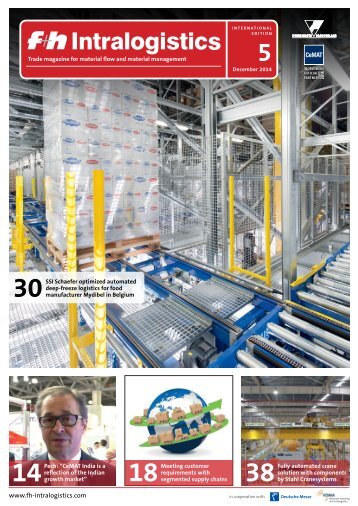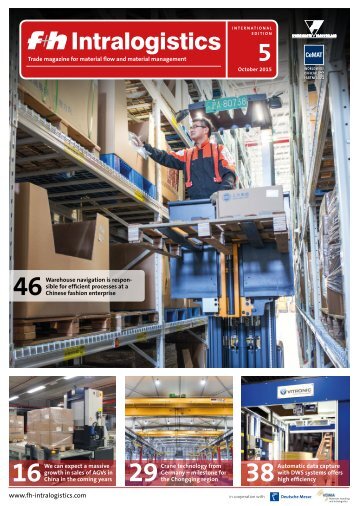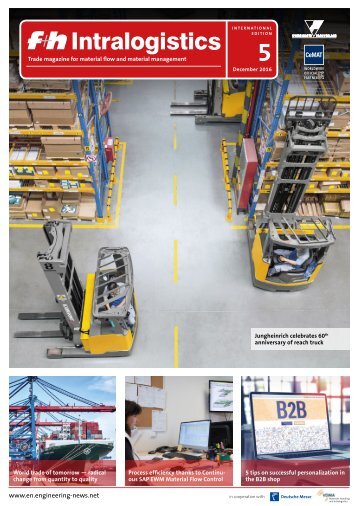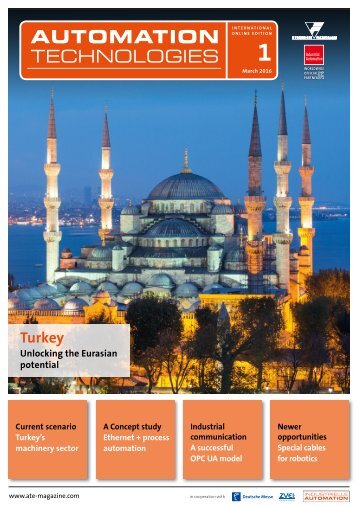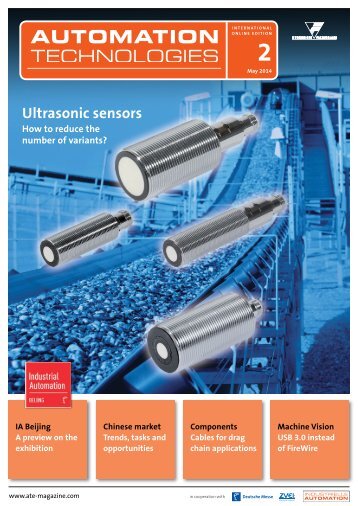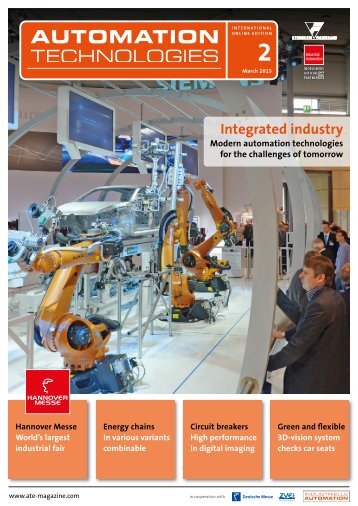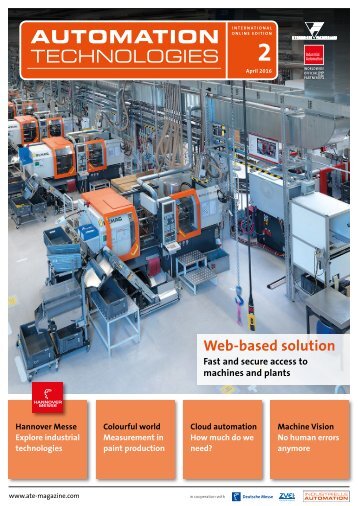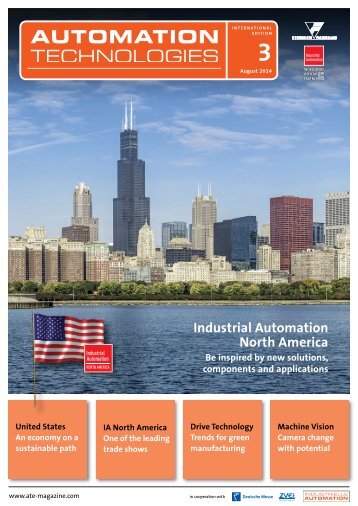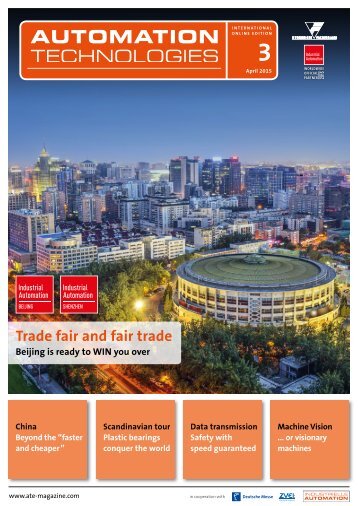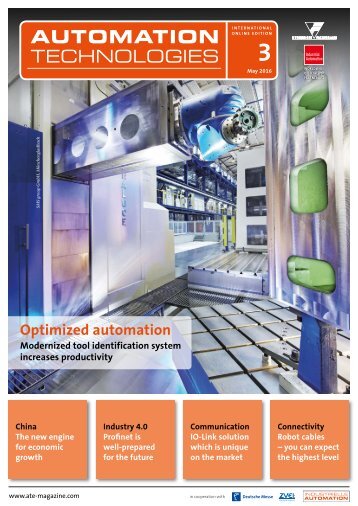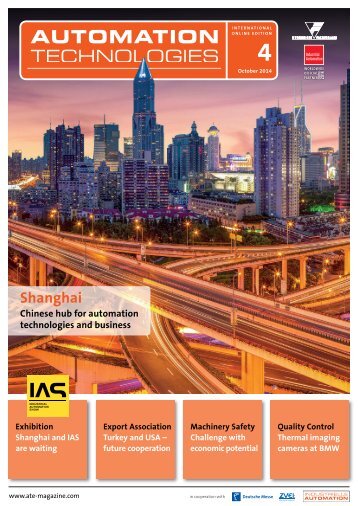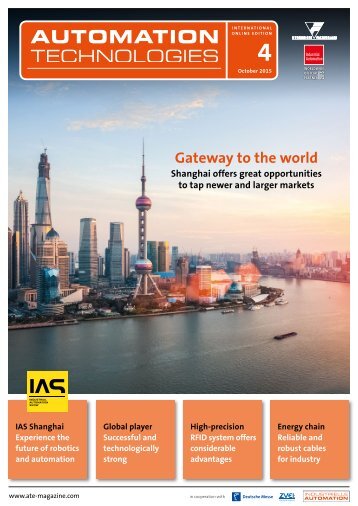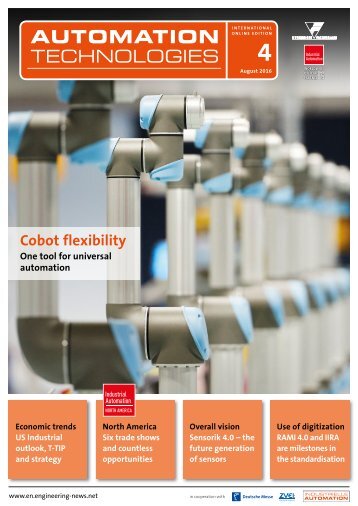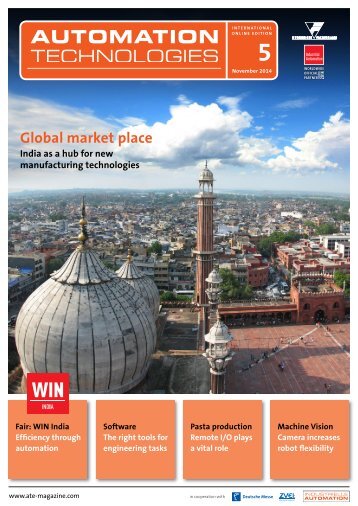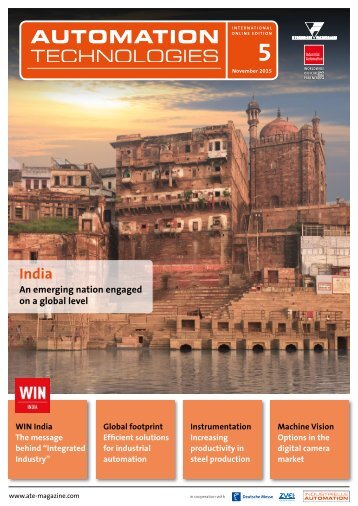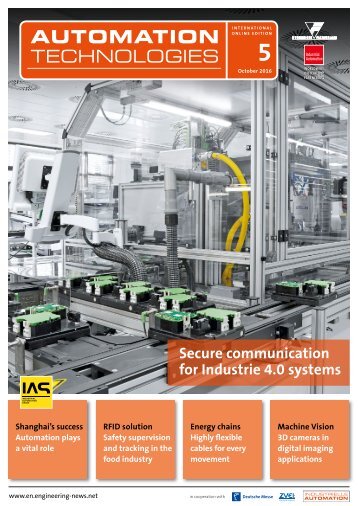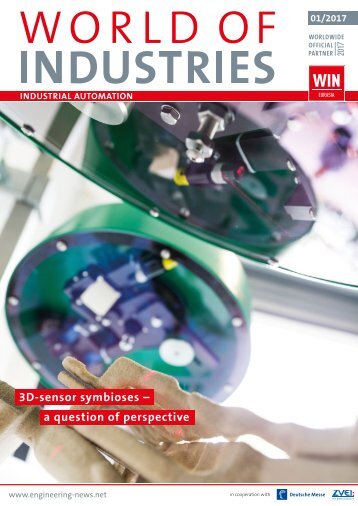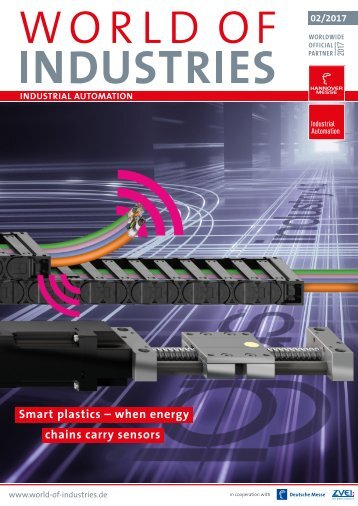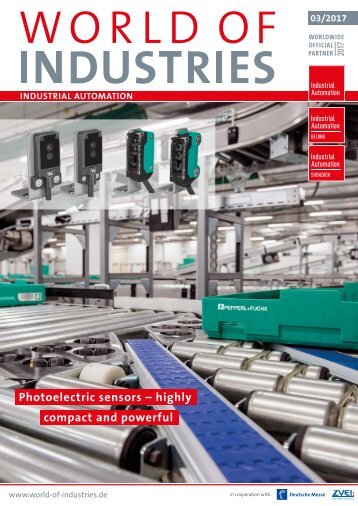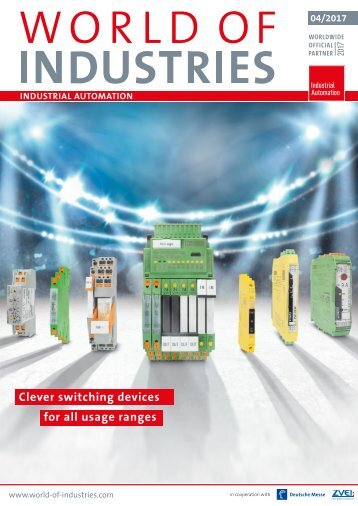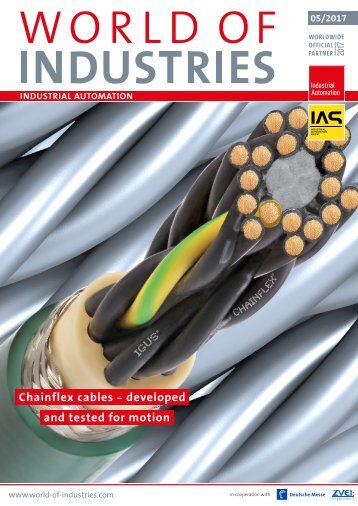MDA Technologies 4/2014
- Text
- Mda
- Technologies
Machine Elements 01
Machine Elements 01 Drylin linear plain bearings glide on high-performance plastics 02 Sand, dust or other foreign particles cannot stick to the plain bearings so these have no problems, however difficult the conditions bushes) over ball bearings (ball linings) can be illustrated in the field of linear and drive technology. Thanks to the larger contact surface and lower surface pressure, softer shaft or axle materials (e.g. aluminium or carbon fibre) can be used, one of the advantages of which is further weight reduction. Since there is no mechanical rolling of hard friction partners and no collision of roll bodies, the gliding movement causes much less noise and vibration. Stringing guide rails together to make even larger stroke lengths possible is also much easier using linear plain bearings, because the glide element grooves can be moved over much more easily than by balls. One important material-related disadvantage of all roller bearings is the restriction of permissible speeds and accelerations. The maximum values are limited, particularly with low loads. In contrast, polymer slide bushes have high gliding speeds and accelerations, and significantly increase cycle times in numerous applications. However, the most important trump card is service life. Bearings made of high-performance polymers are often more durable than a conventional ball bearing could ever be. In addition, the service life can be calculated by various programs. In the past few years, enormous progress has been made in terms of precision and friction values. Plastic plain bearings are now being used in numerous areas of application where conventional ball linings were previously used. For sensitive application fields Maintenance- and lubricant-free linear plain bearings such as the Igus drylin range are already in use in numerous industries thanks to their performance spectrum. In production processes which make special demands on robustness and insensitivity against environmental influences such as humidity, chemicals or dirt, systems with polymer linear plain bearings can be offered as the ideal solution – from profile rails through to complete linear axes. One of the first uses for self-lubricating and innovative plain bearing technology was in the wood and furniture industry, where the combination of wood dust and traditional lubricants caused expensive production downtimes. Guides jammed or glide partners became fused and then cracked apart again due to a lack of lubrication (so-called “seizure”). Igus was one of the first plastics specialists to take up this challenge, and developed linear plain bearings which stand out on account of their low-friction dry running properties. In the meantime, the advantages of the drylin technology supplied by Igus have paved the way for use in much more sensitive application fields. Complete linear units are installed in sensitive hygienic areas such as medical technology and the food industry, in clean room technology and in high-temperature systems, and guarantee a soilingresistant and reliable drive that even makes high speeds and minimum running noise possible. The drylin systems also have design advantages over competitive products. Igus is the only supplier to offer glide elements with integrated dirt channels, for example, which strip the dirt particles off the guide track and route them through the bearing, preventing pressure build-up in front of the bearing. And the gliding films can be replaced easily and at low cost wherever a high degree of soiling and wear makes this necessary. Competitors whose linear plain bearings do not have such dirt channels and who emphasise the larger contact surfaces of their products are neglecting the load caused by dirt and dust deposits. Unlike them, Igus researchers use their in-house laboratory facilities to look for the optimum ratio between surface pressure and reliable 36 MDA Technologies 4/2014
03 Since the gliding film is not made up of one surface foreign bodies such as swarf can be displaced easily, so that the plain bearing can run perfectly smoothly 04 With plain bearings, the force is distributed over more points compared to roller bearings Pros and cons - linear plain bearings/ ball bearings for linear technology Polymer linear plain bearings Linear ball bearings + high static load-bearing capacity + low-friction + high speeds possible + low-wear + wear-resistant (tribo-polymers) + low heat development + impact-resistant + precise running + lower surface pressure (allows the use - afflicted by vibration of "soft" shafts and non-hardened counter-rotation partners) + large stroke lengths possible - afflicted by noise + weight-reduced - constant lubrication required + low-vibration - prone to impact + low-noise - restricted speed + maintenance-free - prone to corrosion + lubrication-free - prone to soiling + resistant to dirt and environment - prone to environmental influences (humidity, heat, chemicals) + long service life - maintenance-prone - not precise enough yet - greater movement resistance - friction values can be minimised further = cost-efficient = cost-inefficient running – in the sense of production costs. Linear bearing technology has made significant progress. For a long time, ball linings were the ultimate for linear drives. However, low-friction high-performance plastics have set a new standard in terms of lubricant and maintenance freedom. Slide bushes are easier to use and more reliable in operation, which, in the final analysis, also makes them cheaper. For this reason, modern polymer plain bearings are the clear winners on points in the “glide versus roll” discussion. www.igus.com About Company name: igus Established: 1964 Headquarters: Cologne, Germany Turnover: €427 m Employees: 2,400 worldwide Products: motion plastics, plastic components for moving applications: energy chain systems, cables, polymer bearings, linear bearings, lowcost-automation MDA Technologies 4/2014 37
- Page 1: Motion, Drive and Automation intern
- Page 4: table of content 14 New products at
- Page 7 and 8: Porto Alegre will host the 2 nd edi
- Page 9 and 10: SKF builds a new Global Technical C
- Page 11 and 12: Voice from exhibitiors and vistors
- Page 13 and 14: The Germany-China Business Associat
- Page 15 and 16: News and Markets Motor Portfolios f
- Page 17 and 18: news and markets Video 01 National
- Page 19 and 20: Drive Technologies Engineering, Des
- Page 21 and 22: Now often billed as an island parad
- Page 23 and 24: out the project. From the day Wugan
- Page 25 and 26: Drive Technologies 01 Arab Potash C
- Page 27 and 28: Drive Technologies 01 Packaging mac
- Page 29 and 30: Measurement and Control 01 Battery
- Page 31 and 32: Machine elements nominal rating lif
- Page 33 and 34: NORD DRIVESYSTEMS | Intelligent Dri
- Page 35: which is why they are often fitted
- Page 39 and 40: Lasts longer. Get more value out of
- Page 41 and 42: Fluid Power technology magazine Mea
- Page 43 and 44: MAchine Elements engine peripherals
- Page 45 and 46: ubrizierungsebebe 2 I rubrizierungs
- Page 47 and 48: Precision of the highest degree Red
- Page 49 and 50: High pressure hydraulic hose for ap
- Page 51 and 52: Measurement and control system dyna
- Page 53 and 54: Measurement and control But the con
- Page 55 and 56: Measurement and control About Compa
Inappropriate
Loading...
Mail this publication
Loading...
Embed
Loading...

